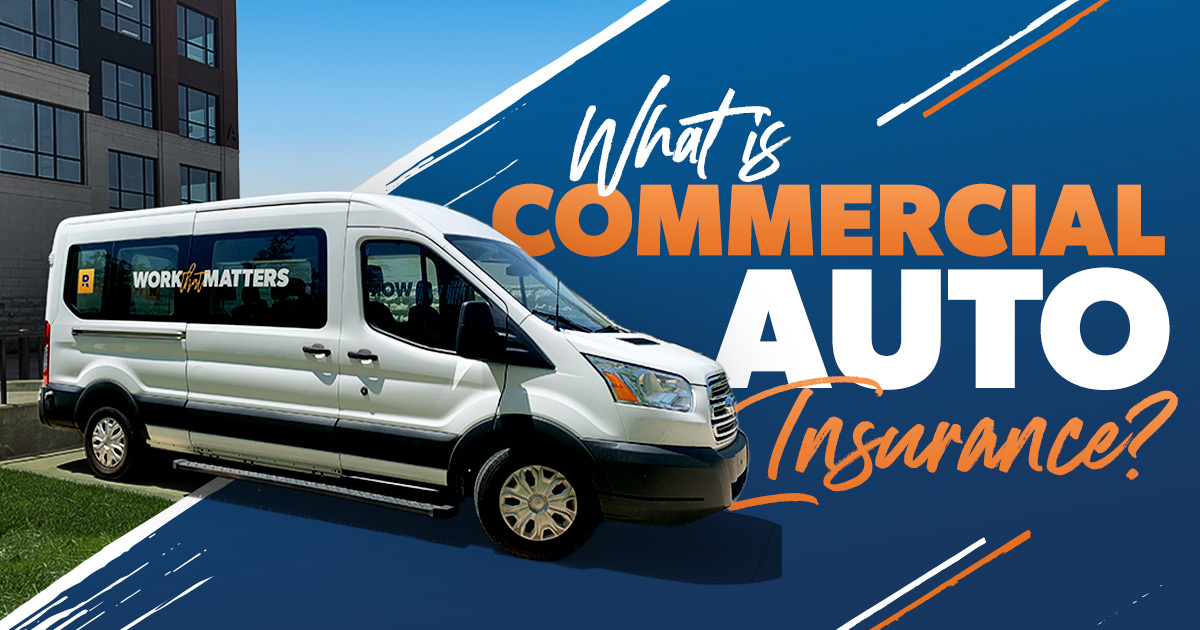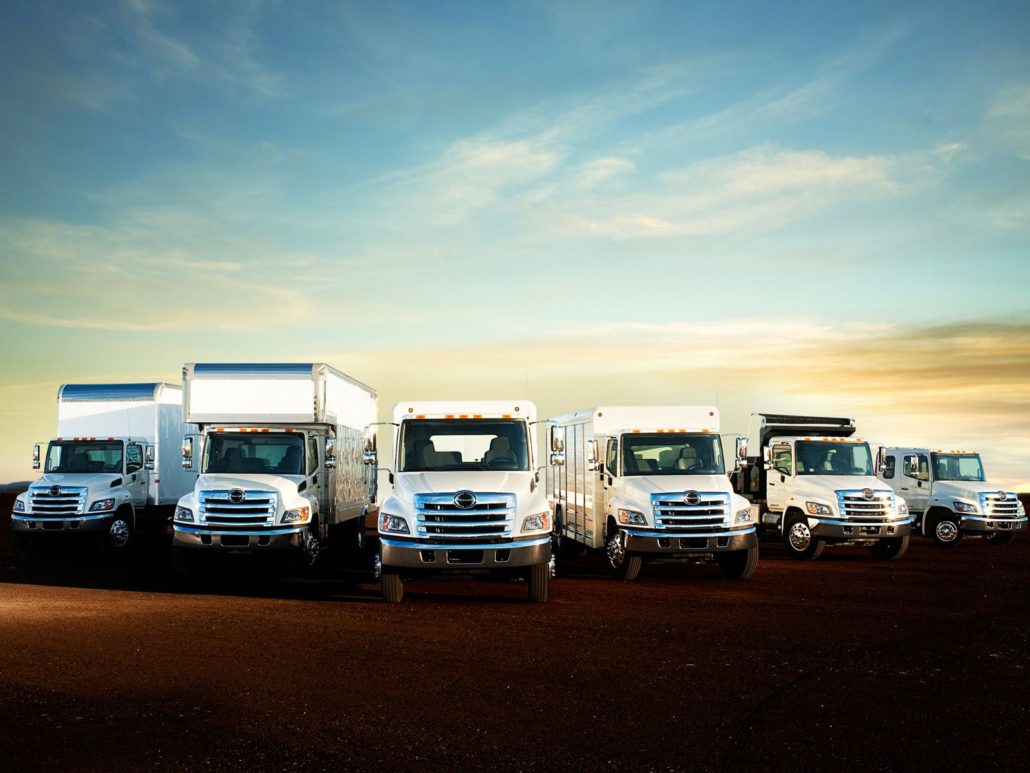Commercial Auto Insurance: Protecting Your Business on the Road
When running a business that involves vehicles, whether it’s a delivery service, transportation company, or field-based operation, commercial auto insurance becomes a necessity. Unlike personal auto insurance, commercial auto insurance is specifically designed to protect businesses from risks associated with their vehicles. This article will explore everything you need to know about commercial auto insurance: what it is, why it’s crucial, the different types of coverage available, and how to choose the right policy for your business.

What is Commercial Auto Insurance?
Commercial auto insurance is a policy designed to provide coverage for vehicles used for business purposes. This includes cars, trucks, vans, and other types of vehicles that are primarily used to conduct business activities. A commercial auto insurance policy can protect your business from financial loss caused by accidents, theft, or damage to vehicles involved in business operations.
Unlike personal auto insurance, which only covers vehicles used for personal purposes, commercial auto insurance extends coverage to vehicles used for a variety of business activities, including transporting goods, delivering products, or even carrying passengers for hire.
Key Benefits of Commercial Auto Insurance
- Liability Protection
In the event of an accident involving a commercial vehicle, commercial auto insurance covers the liability for bodily injury or property damage caused to third parties. This coverage ensures that your business does not bear the financial burden of lawsuits or medical bills. -
Damage Coverage
Whether due to an accident or natural disaster, commercial vehicles can sustain significant damage. A commercial auto insurance policy helps pay for repairs or replacement of damaged vehicles, keeping your business running smoothly without major disruptions. -
Vehicle Theft Protection
If your business relies on vehicles to conduct operations, the loss of a vehicle due to theft can be devastating. Commercial auto insurance protects your business by covering the cost of replacing stolen vehicles, helping you avoid financial losses. -
Uninsured/Underinsured Motorist Protection
In cases where another driver causes an accident and doesn’t have adequate insurance, commercial auto insurance provides coverage for damages, ensuring your business is not left with significant costs in case of an accident caused by an uninsured or underinsured motorist.

Types of Coverage in Commercial Auto Insurance
Commercial auto insurance can include a variety of coverage options to suit the specific needs of your business. Here are some of the most common types of coverage provided under a commercial auto policy:
1. Liability Coverage
Liability insurance is the cornerstone of any commercial auto insurance policy. It provides protection if your vehicle is involved in an accident that causes harm to others. There are two primary types of liability coverage:
- Bodily Injury Liability: Covers medical expenses, lost wages, and other costs incurred by the other party in an accident caused by your driver.
- Property Damage Liability: Covers the cost of repairing or replacing property damaged by your business vehicle, such as fences, buildings, or other vehicles.
2. Collision Coverage
Collision coverage helps pay for damages to your business vehicle after a collision, regardless of who is at fault. This coverage is crucial for businesses that rely on vehicles for daily operations, ensuring that you don’t face financial setbacks after an accident.
3. Comprehensive Coverage
While collision insurance covers accidents, comprehensive coverage protects against non-collision-related events such as theft, vandalism, or natural disasters. This ensures your business vehicles are covered from a wide range of risks beyond just crashes.
4. Medical Payments Coverage
Medical payments coverage helps cover the medical expenses of the driver and passengers in your vehicle in case of an accident. It also provides coverage for anyone injured in your business vehicle, regardless of fault.
5. Personal Injury Protection (PIP)
In some states, Personal Injury Protection (PIP) is mandatory. It covers medical bills, lost wages, and other expenses for anyone injured in an accident involving your commercial vehicle. This coverage applies no matter who is at fault.
6. Uninsured/Underinsured Motorist Coverage
If your business vehicle is involved in an accident with a driver who has little or no insurance, uninsured/underinsured motorist coverage steps in to cover the costs. This type of coverage is especially valuable in areas where uninsured drivers are more common.

Do You Need Commercial Auto Insurance?
If your business uses vehicles for any of the following activities, commercial auto insurance is a must:
- Delivery Services: If your business delivers products, food, or goods, you’ll need commercial auto insurance to protect the vehicles used in these operations.
- Transporting Employees or Clients: Companies that transport employees, customers, or passengers for hire must have commercial auto insurance to cover potential liabilities.
- Service-Based Businesses: If you run a business where employees travel to job sites in company vehicles (e.g., construction companies, plumbers, electricians), commercial auto insurance is essential.
- Hauling or Towing: If your business involves hauling heavy loads or towing vehicles, a commercial policy offers specialized coverage for your specific needs.
When is Personal Auto Insurance Not Enough?
While personal auto insurance provides basic coverage for personal vehicles, it does not extend to vehicles used for business purposes. If you or your employees use a personal vehicle for work-related tasks—such as making deliveries, driving to job sites, or transporting goods—your personal auto policy may not cover you in case of an accident. In such cases, commercial auto insurance ensures that your business is adequately protected.
How to Choose the Right Commercial Auto Insurance Policy
Selecting the right commercial auto insurance policy requires careful consideration of your business’s specific needs. Here are some factors to keep in mind:
1. Understand Your Business’s Vehicle Use
Before purchasing a commercial auto policy, assess how your business vehicles are used. Are they used for deliveries, passenger transport, or long-distance travel? Understanding how the vehicles are used will help you determine which types of coverage you need.
2. Shop Around for Quotes
Insurance providers offer different pricing based on the level of coverage you need, your business’s risk profile, and the location of your operations. Get quotes from multiple providers to find the best coverage at the most competitive price.
3. Consider the Size and Value of Your Fleet
If your business has a large fleet of vehicles, it’s important to consider how much coverage you need for each vehicle. You may need to purchase more comprehensive coverage for high-value or specialized vehicles.
4. Check for Discounts
Some insurers offer discounts for businesses that maintain a safe driving record, use vehicles equipped with safety devices, or operate in low-risk industries. Be sure to ask about available discounts to reduce your premium.
5. Review Your Policy Annually
As your business grows or changes, so do your insurance needs. Make sure to review your commercial auto insurance policy annually to ensure it still meets your needs. If you add new vehicles or expand your fleet, update your policy accordingly.
Frequently Asked Questions (FAQs)
1. Is commercial auto insurance required by law?
Yes, commercial auto insurance is required by law in most states if your business operates vehicles. The minimum coverage required varies by state, but at a minimum, businesses must carry liability coverage.
2. What types of vehicles are covered under a commercial auto policy?
A commercial auto insurance policy typically covers cars, trucks, vans, and any other vehicle used for business purposes. This includes vehicles used for deliveries, service calls, or transporting goods and employees.
3. Can I add personal vehicles to my commercial auto policy?
No, personal vehicles are generally not covered under commercial auto insurance. If you use a personal vehicle for business purposes, you may need to add business use coverage to your personal policy or purchase a separate commercial policy.
4. Does commercial auto insurance cover employees driving personal vehicles?
Commercial auto insurance usually does not cover personal vehicles. However, some policies offer hired and non-owned vehicle coverage, which can protect your business if an employee uses their personal vehicle for business purposes.
5. How much does commercial auto insurance cost?
The cost of commercial auto insurance varies depending on factors such as the type of vehicles, how they are used, your business’s risk profile, and the coverage limits you choose. On average, businesses can expect to pay anywhere from $500 to $3,000 per year for commercial auto insurance.
Conclusion
Commercial auto insurance is an essential investment for businesses that use vehicles as part of their operations. It provides vital protection against accidents, theft, property damage, and liability claims. By understanding the different types of coverage available and assessing your business’s needs, you can choose the right policy to safeguard your assets and minimize financial risks.
If you’re unsure about which coverage options are best for your business, speak with an experienced insurance agent who can help you find the best policy for your needs.


